The best way to grow incredible vegetable and flower transplants from seed is by starting with incredibly rich and fertile soil – and there is no better way to do that than by taking a few simple steps to make your own seed starting soil right at home!
Not only is making your own seed starting soil easy, it gives you the opportunity to load it up with all of the vital nutrients and resources tiny seeds need to get off to a great start. And you won’t believe just how easy it is to make!
With just five basic ingredients, you can create a powerful seed starting soil that results in quick germination and healthier seedlings. One that will have you planting transplants into your garden and flowerbeds that are ready to rock right from the start.
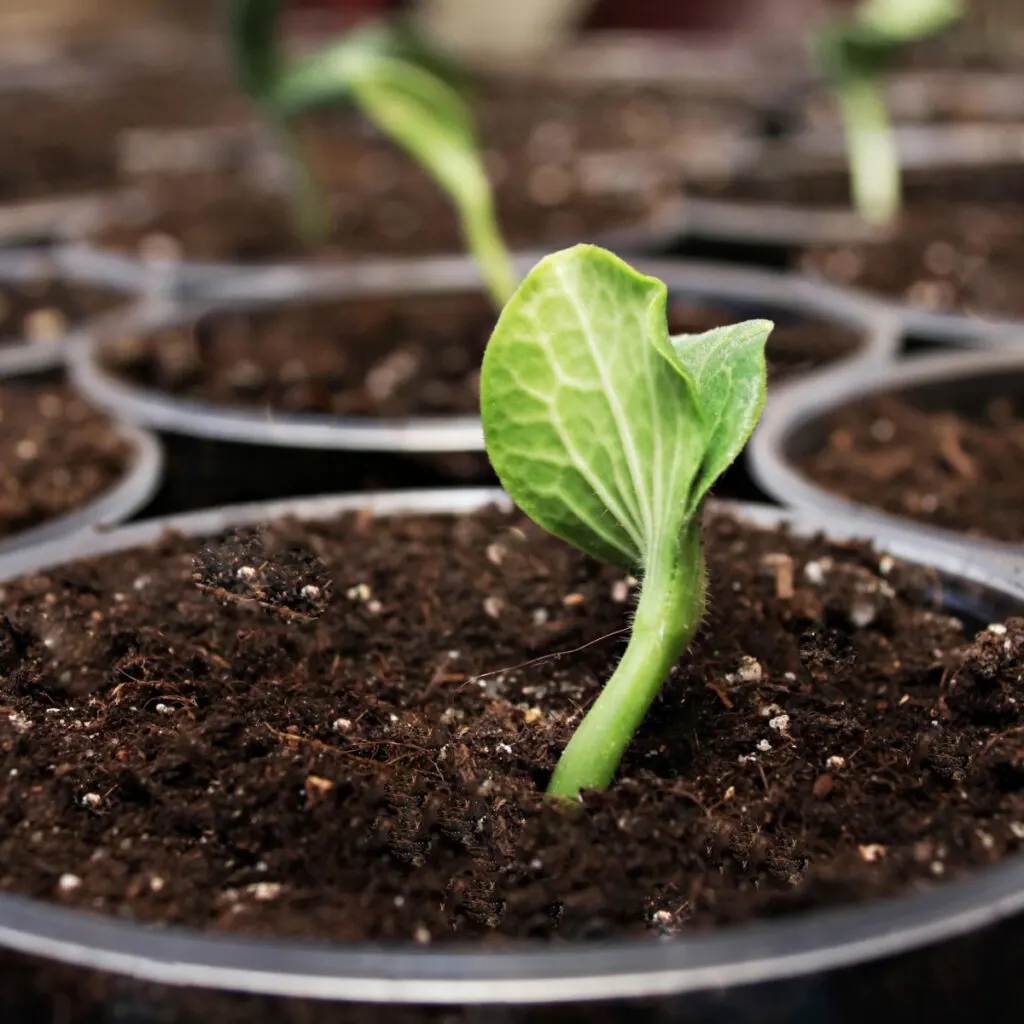
Let’s face it, growing your own transplants from seeds is a great way to save money on your gardening budget. Buying plants every year can certainly get expensive. Bur growing your own plants also allows you a chance try new and unique seed varieties that you simply can’t find locally.
In order to start seeds at home, you need soil that is light, airy and powerful enough to provide your young seeds and seedlings with everything they need to germinate and grow. Unfortunately, that is something commercial potting soil and seed starting soil mixes often don’t have.
That is exactly where making your own seed starting mixture can give you a big advantage. It allows you to grow your own seeds while being in control of the entire process – from start to finish.
Why Potting Soil Isn’t Enough
One of the biggest mistakes gardeners make when starting seeds indoors is to use ordinary potting soil. Potting soil alone is great for growing mature plants and flowers. Unfortunately, it isn’t the best option for tiny seeds or seedlings that are just beginning to grow.
Potting soil tends to be more dense and heavier than seeds can handle. This can not only hurt the germination process, but in addition, when the soil is heavier, small seedlings struggle to push out new roots. This prevents them from creating a good support system for growing into healthy, strong plants.
In addition, even high-end potting soil mixtures often lack the nutrients and organic matter that seeds need in order to thrive. And without those nutrients, seedlings may germinate, but they will still struggle to develop good roots.
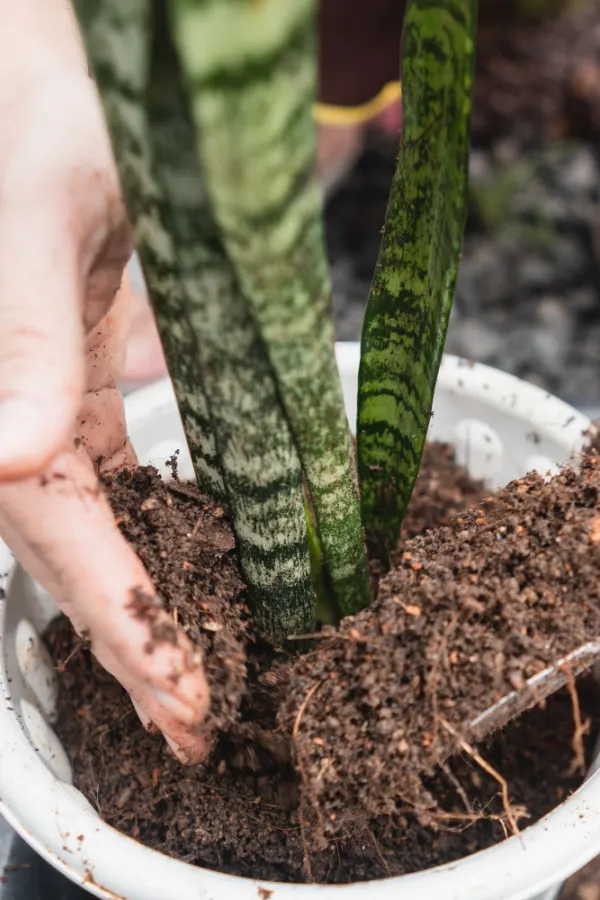
It’s not that potting soil isn’t a good ingredient for a seed starting mix. It’s actually a great foundation for one. You simply need to add a few more ingredients to it to make it perfect for growing growing great transplants.
How To Make Incredible Seed Starting Soil
So what does it take to make great seed starting soil? Here is a look at five simple ingredients that together, create an incredibly powerful, lightweight soil that will have your seedlings growing like crazy! As for how much to use of each, we have included our simple recipe at the end of the article.
Potting Soil – The Base Ingredient
While potting soil alone isn’t great, it does act as an excellent base for the seed starting mixture. Ensure that you are choosing a high-quality mixture that doesn’t include any fertilizers.
When seedlings are young, they are very susceptible to powerful fertilizers. Not only can it cause excessive foliage growth, it also doesn’t allow the stems to become strong and sturdy. In fact, too much or too strong of a fertilizer can actually kill young seedlings.
Seedlings need more of a lighter, slow-release type of fertilizer that allows for slow but consistent growth. That way, the seedlings can absorb the nutrients more gently over time.
Listen In Below To Our Podcast On How To Start Seedlings Indoors With Ease!
Compost
When it comes to slowly and safely powering plants, it doesn’t get any better than compost. Compost helps to add vital nutrients to growing seedlings and transplants. It also helps to add loads of organic matter to the soil as well.
Organic matter is critical for increasing the drainage of the soil, which is extremely important for seeds. At the same time, compost helps to absorb moisture and provide seedlings with hydration right where they need it most – at their roots.
When it comes to using compost for starting seeds, make sure that you sift or break apart the compost first. If you have materials that haven’t fully broken down in the compost, they will negatively affect the overall composition of the seed starting soil.
Also, only use well-aged compost. Young seedlings are very susceptible to being harmed with too much power. Using compost that hasn’t completely finished breaking down can be too hot and kill young seedlings. Affiliate Link: R&M Organics Premium Organic Compost
Don’t Forget The Perlite When Making Incredible Seed Starting Soil
Perlite is a major ingredient for making great seed starting soil. Perlite is an all-natural product that is made from volcanic glass. When it gets exposed to high temperatures, perlite puffs up into a light and airy substance. It’s similar to how popcorn pops into fluffy kernels when it’s heated.
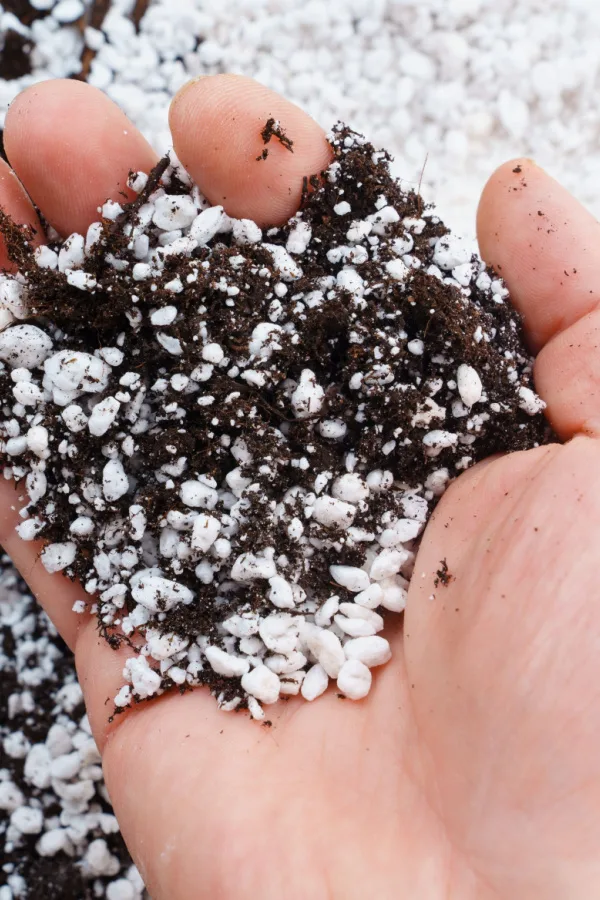
You have likely seen perlite in commercial potting soil mixtures or in the soil of houseplants. Although it actually resembles styrofoam and is often confused with it, it is 100% organic and safe for plants.
The reason why it’s so useful for seed starting soil mixtures is that it helps to lighten the soil. Those little white puffs also create air pockets within the soil that allow both water and air into the soil. In addition, it helps to create open paths where young seedling roots can grow and expand with ease.
The best part of adding perlite to your mixture is that it never breaks down. It will continue to help prevent the soil from compacting indefinitely. (Affiliate Product Link: Organic Perlite Bliss)
Worm Castings
Worm castings breathe huge life into seed starting soil. Casting are the byproduct that worms create as they eat and break down the soil. And are they ever loaded with gentle power! See our article: How To Use Worm Castings To Power Plants
Like perlite, worm castings help to lighten and break apart the potting soil and compost part of this mixture. But unlike perlite, worm castings are packed full of nutrients and minerals as well as organic matter.
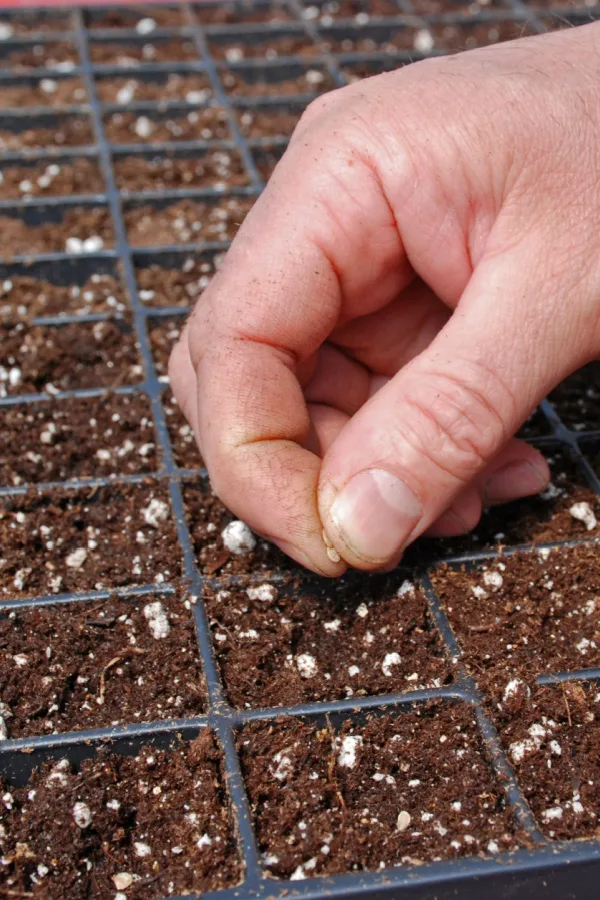
So in addition to helping the overall composition of the seed starting soil, worm castings act like a gentle slow-release fertilizer that is perfect for seeds and young seedlings. Castings take seed starting soil to the next level! (Affiliate Product Link: Wiggle Worm Worm Castings)
Egg Shell Powder
Last but not least, there is egg shell powder, which is nothing more than finely ground egg shells. Egg shells contain large amounts of calcium, which is critical for early plant growth. They also happen to contain phosphorous and magnesium, which are important for early development as well.
The key with using egg shells is to completely grind the egg shells and pulverize them into a powder. This allows the nutrients in the shells to break down faster and be more readily available to young seedlings as they grow.
The best way to grind and pulverize egg shells is with a basic electric coffee grinder. It makes quick work of the shells, turning them into a fine powder in just a few seconds. Affiliate Link: Electric Coffee Grinder
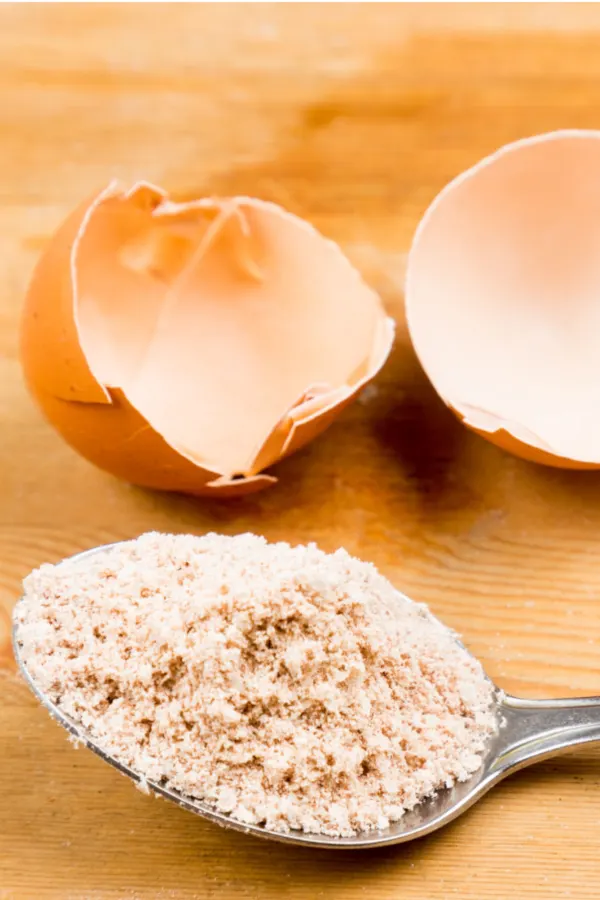
The Perfect Ratio For Making Incredible Seed Starting Soil
Mixing all of the above ingredients together to create the perfect seed starting mix is a breeze. To create, simply take 1 cup of potting soil, 1 cup of compost, 1 cup of perlite, 1 cup of worm castings and 4 to 6 tablespoons of egg shell powder and mix together.
With this simple mixture, you will create a soil that is lightweight, drains well, and is packed with nutrients. And it all but guarantee your seeds and seedlings will get off to an incredible start. Here is to making your own powerful seed starting soil this year – and to growing your best transplants ever!
Simple Garden Life
Follow Our Facebook Page For Even More Great Tips! Simple Garden Life Facebook Page
Simple Garden Life is a website dedicated to keeping gardening fun, simple and enjoyable! We publish two new articles each week along with a new garden podcast episode every two weeks. This article may contain affiliate links.
